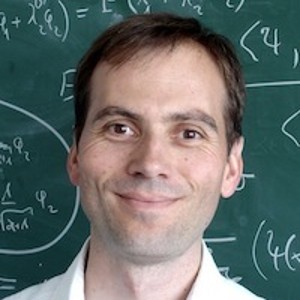
Stability of a Szegő-type asymptotics
P. Müller, R. Schulte
We consider a multi-dimensional continuum Schrödinger operator H which is given by a perturbation of the negative Laplacian by a compactly supported bounded potential. We show that, for a fairly large class of test functions, the second-order Szegő-type asymptotics for the spatially truncated Fermi projection of H is independent of the potential and, thus, identical to the known asymptotics of the Laplacian.

Special issue on Mathematical Results in Quantum Mechanics
M. Christandl, H. Cornean, S. Fournais, P. Müller, J.Schach Møller (Editors)
Rev. Math. Phys. 33 (1), (2020).

Stability of the Enhanced Area Law of the Entanglement Entropy
P. Müller, R. Schulte
Ann. H. Poincaré 21, 3639 – 3658 (2020).
We consider a multi-dimensional continuum Schrödinger operator which is given by a perturbation of the negative Laplacian by a compactly supported potential. We establish both an upper bound and a lower bound on the bipartite entanglement entropy of the ground state of the corresponding quasi-free Fermi gas. The bounds prove that the scaling behaviour of the entanglement entropy remains a logarithmically enhanced area law as in the unperturbed case of the free Fermi gas. The central idea for the upper bound is to use a limiting absorption principle for such kinds of Schrödinger operators.

Localisation for Delone operators via Bernoulli randomisation
P. Müller, C. Rojas-Molina
Delone operators are Schrödinger operators in multi-dimensional Euclidean space with a potential given by the sum of all translates of a given "single-site potential" centred at the points of a Delone set. In this paper, we use randomisation to study dynamical localisation for families of Delone operators. We do this by suitably adding more points to a Delone set and by introducing i.i.d. Bernoulli random variables as coupling constants at the additional points. The resulting non-ergodic continuum Anderson model with Bernoulli disorder is accessible to the latest version of the multiscale analysis. The novel ingredient here is the initial length-scale estimate whose proof is hampered due to the non-periodic background potential. It is obtained by the use of a quantitative unique continuation principle. As applications we obtain both probabilistic and topological statements about dynamical localisation. Among others, we show that Delone sets for which the associated Delone operators exhibit dynamical localisation at the bottom of the spectrum are dense in the space of Delone sets.

How Much Delocalisation is Needed for an Enhanced Area Law of the Entanglement Entropy?
P. Müller, L. Pastur, R. Schulte
Commun. Math. Phys. 376, 649 – 679 (2019).
We consider the random dimer model in one space dimension with Bernoulli disorder. For sufficiently small disorder, we show that the entanglement entropy exhibits at least a logarithmically enhanced area law if the Fermi energy coincides with a critical energy of the model where the localisation length diverges.

Perturbations of continuum random Schrödinger operators with applications to Anderson orthogonality and the spectral shift function
A. Dietlein, M. Gebert, P. Müller
J. Spectr. Theory 9, 921 – 965 (2019).
We study effects of a bounded and compactly supported perturbation on multidimensional continuum random Schrödinger operators in the region of complete localisation. Our main emphasis is on Anderson orthogonality for random Schrödinger operators. Among others, we prove that Anderson orthogonality does occur for Fermi energies in the region of complete localisation with a non-zero probability. This partially confirms recent non-rigorous findings [V. Khemani et al., Nature Phys. 11 (2015), 560–565]. The spectral shift function plays an important role in our analysis of Anderson orthogonality. We identify it with the index of the corresponding pair of spectral projections and explore the consequences thereof. All our results rely on the main technical estimate of this paper which guarantees separate exponential decay of the disorder-averaged Schatten p-norm of χa(f(H)−f(Hτ))χb in a and b. Here, Hτ is a perturbation of the random Schrödinger operator H, χa is the multiplication operator corresponding to the indicator function of a unit cube centred about a∈Rd, and f is in a suitable class of functions of bounded variation with distributional derivative supported in the region of complete localisation for H.
